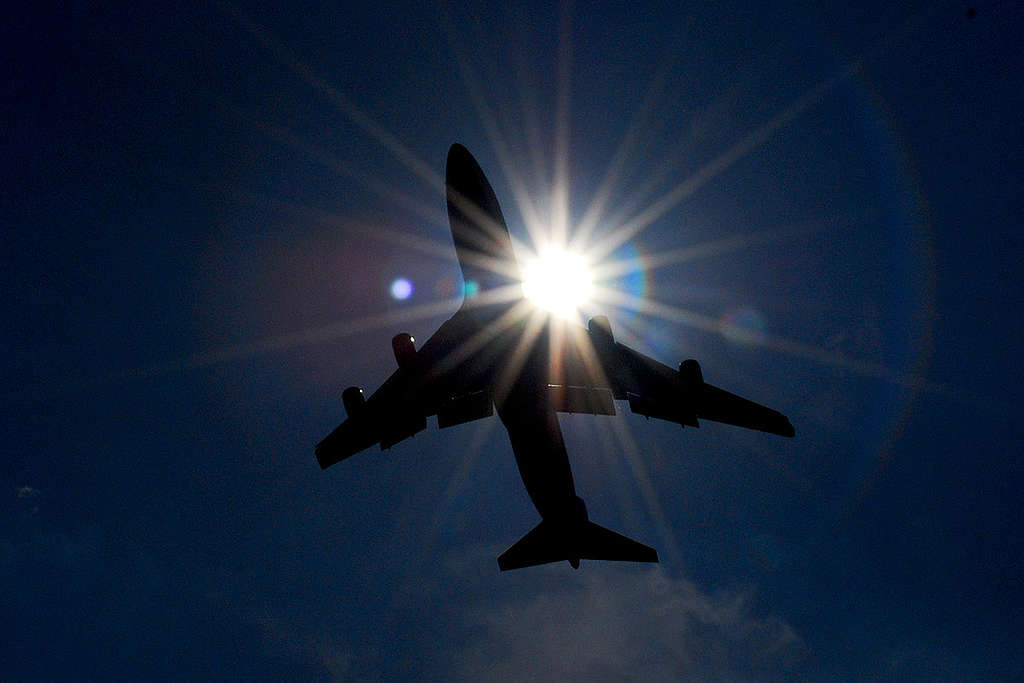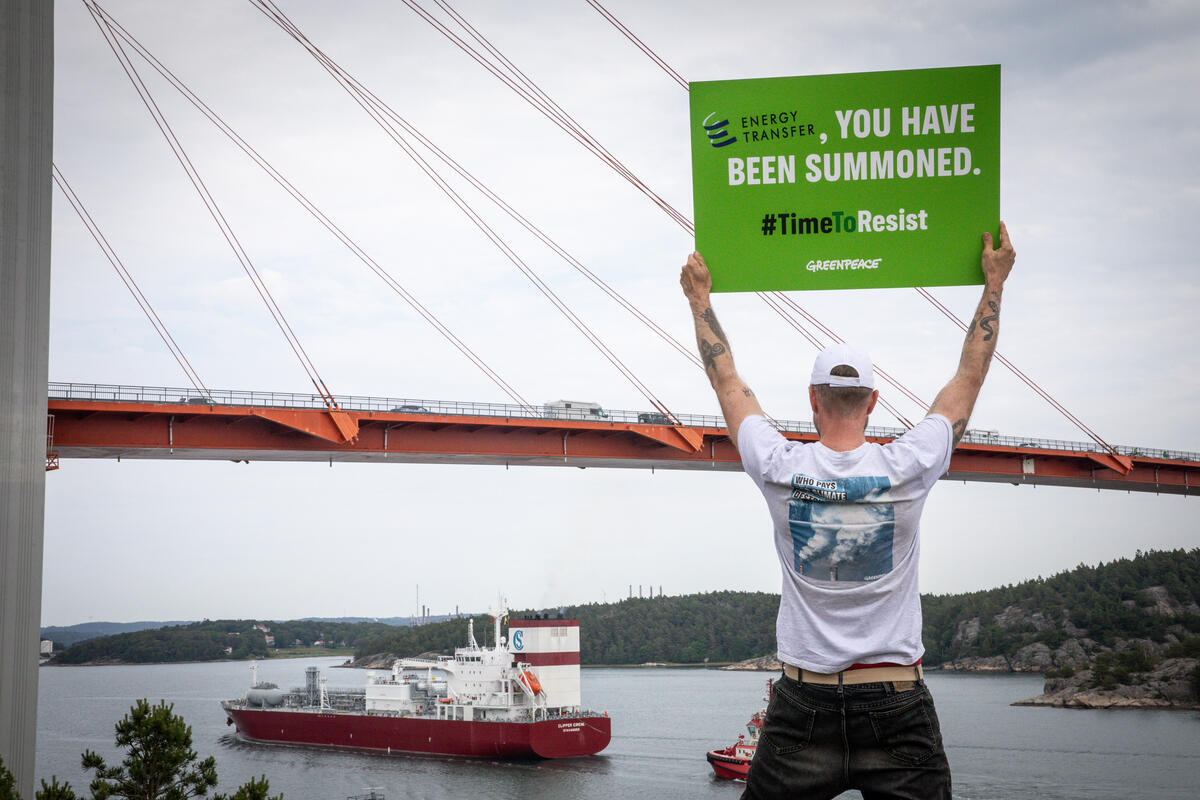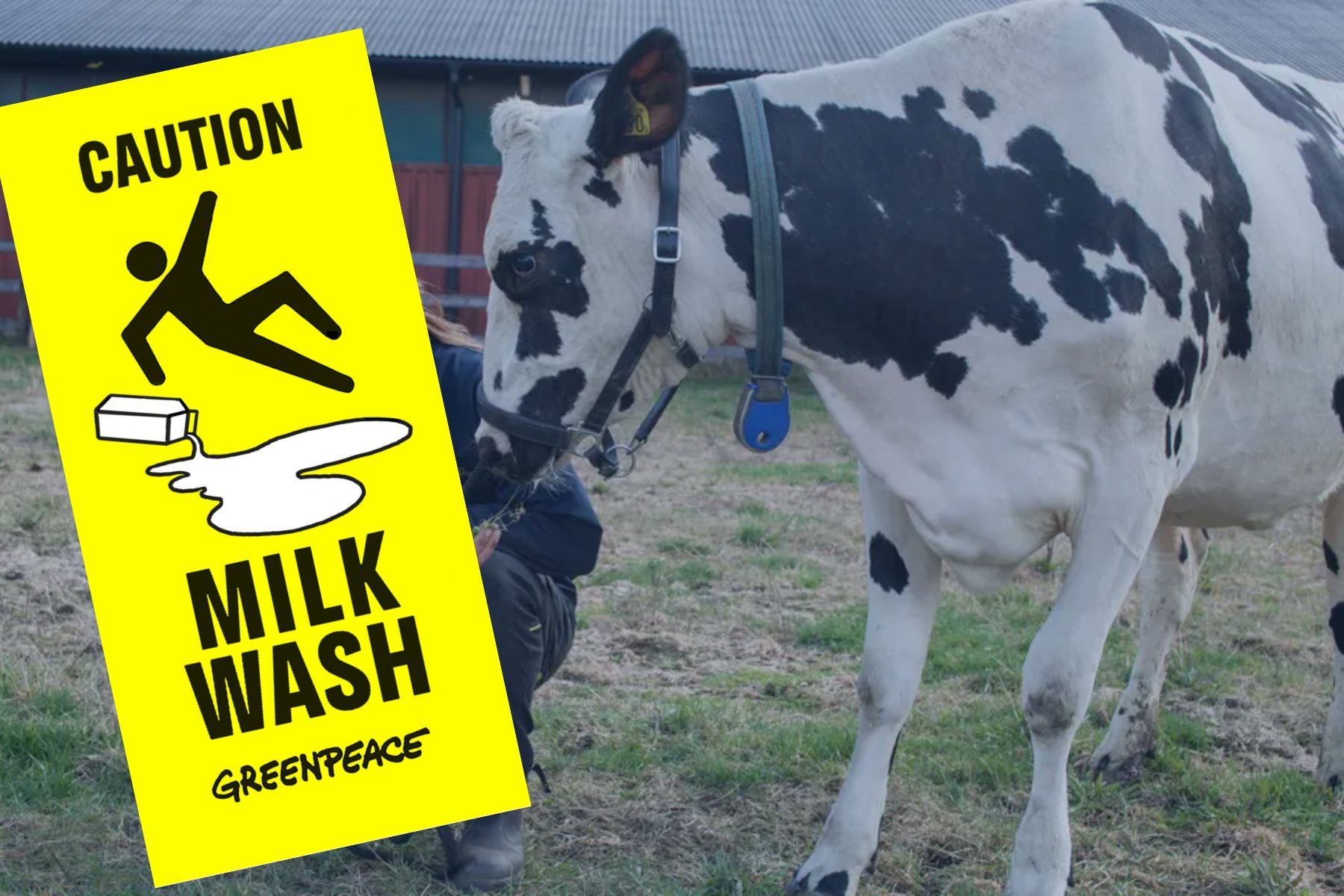On Monday, the Swedish government published its report on jet bio-fuels. The report makes it clearer than ever that there is an urgent need to severely decrease the amount of air travel, says Greenpeace expert, calling bio-fuels in airplane tanks a “false solution for the climate”.

Planes at London Heathrow, aeroplanes, aviation industry UK.
The report makes it apparent that to save the climate we have to start flying much less than we do today. Bio-fuels are an inefficient solution since, even if we by a miracle where to discover truly sustainable bio-fuels, the report shows that the emission cuts would be very moderate. A twelve percent emission cut is nowhere near enough to save the climate, says Lina Burnelius, expert on forest and bio-economy with Greenpeace
The report speaks of emission cuts of around 25 percent, but does not take into account the high altitude effect. When this is included, the decease amounts to only around 12 percent. Moreover, even this decrease only applies to the airplanes fueled in Sweden.
I cannot stress enough that bio-fuels are not a sustainable option as flight fuel. A twelve percent false emission cut is actually no cut at all, says Lina Burnelius who sees a large number of issues in the report that need to be addressed.
Where will this fuel come from without increased pressure on an already strained ecosystem? Should we really be using our limited lands to grow fuels? If we increase the amount of bio-fuel from crops, enormous areas will have to be cultivated for this purpose. To replace half of our fossil fuels with bio-fuels, a third of the world’s croplands would need to be taken out of other production. This type of unprecedented expansion will require enormous additional forest areas to be logged resulting in exposure and atmospheric release of vast quantities of carbon. On top of this, it will have a strong detrimental effect on our biodiversity. IPCC is clear on this: We need to protect more forests if we are to handle the climate crisis, says Lina Burnelius
Below of the mountainous areas there’s only about 2.7 million hectares of untouched natural forest left in Sweden. According to the Swedish EPA, at today’s harvest rate, these forests will be gone within 20 years. We need to halt the logging rate and protect our natural climate solution: natural forest = a big co2 storage and a growing sink.
One other “solution” for sourcing bio-fuel that has been mentioned is using food waste. Today, there are very few jet bio-fuels producers using food waste. It’s also clear that we need to cut back on our food waste.
My question to the government is, should we really count on food waste to replace our fossils?
The most effective way of cutting emissions from air travel is to cut back on air travel. When do we get a report – and politics – on how you will enabling us to do this? Concluded Lina Burnelius.
Contacts
Expert on forest and bio-economical issue, Greenpeace Sweden
Lina Burnelius
[email protected]
+46 (0)72 214 43 60
Communications officer, Greenpeace Sweden
Markus Mattisson
[email protected]
+46 (0)70 397 66 72




Diskussion
Excellent post. I was checking constantly this blog and I am impressed! Very useful info specially the last part :) I care for such info a lot. I was seeking this certain info for a very long time. Thank you and good luck.